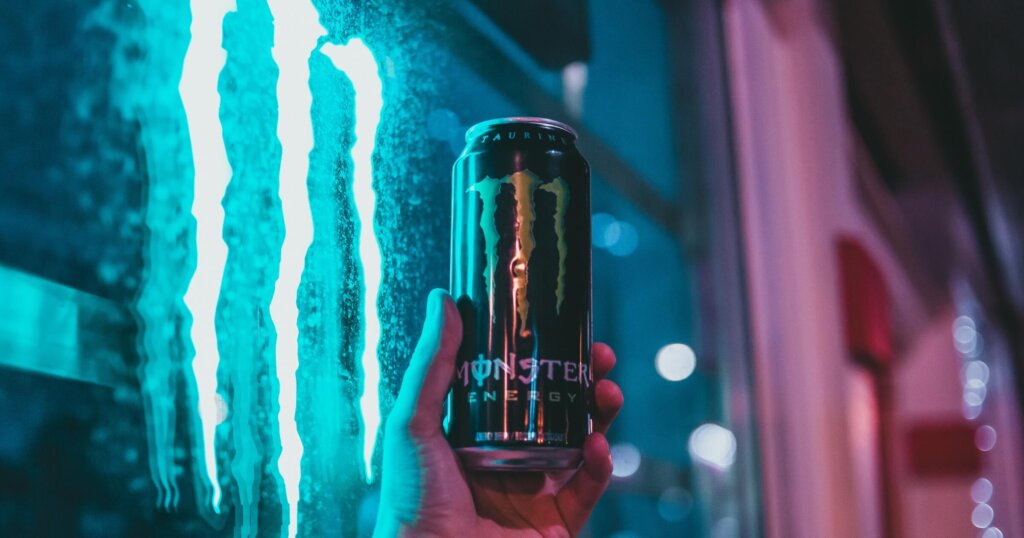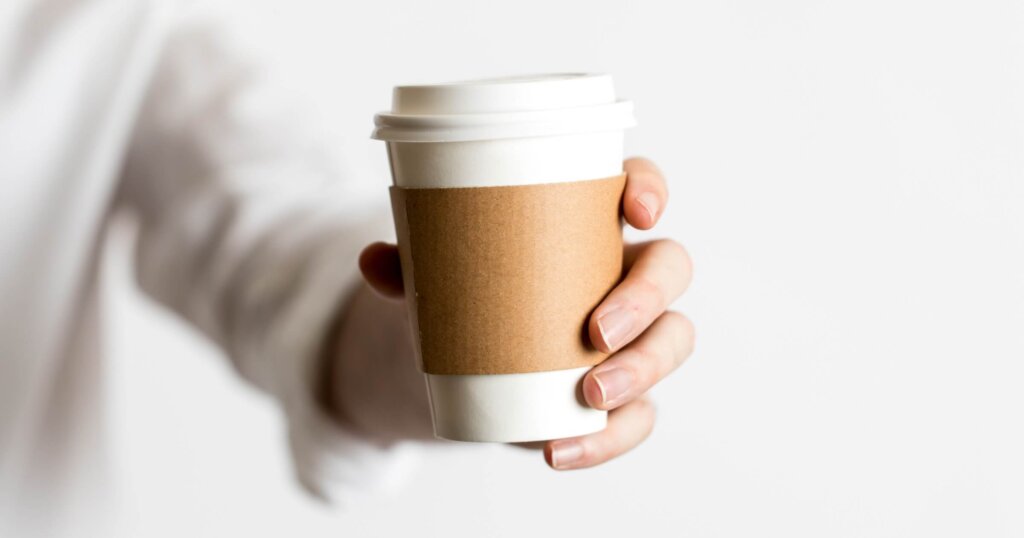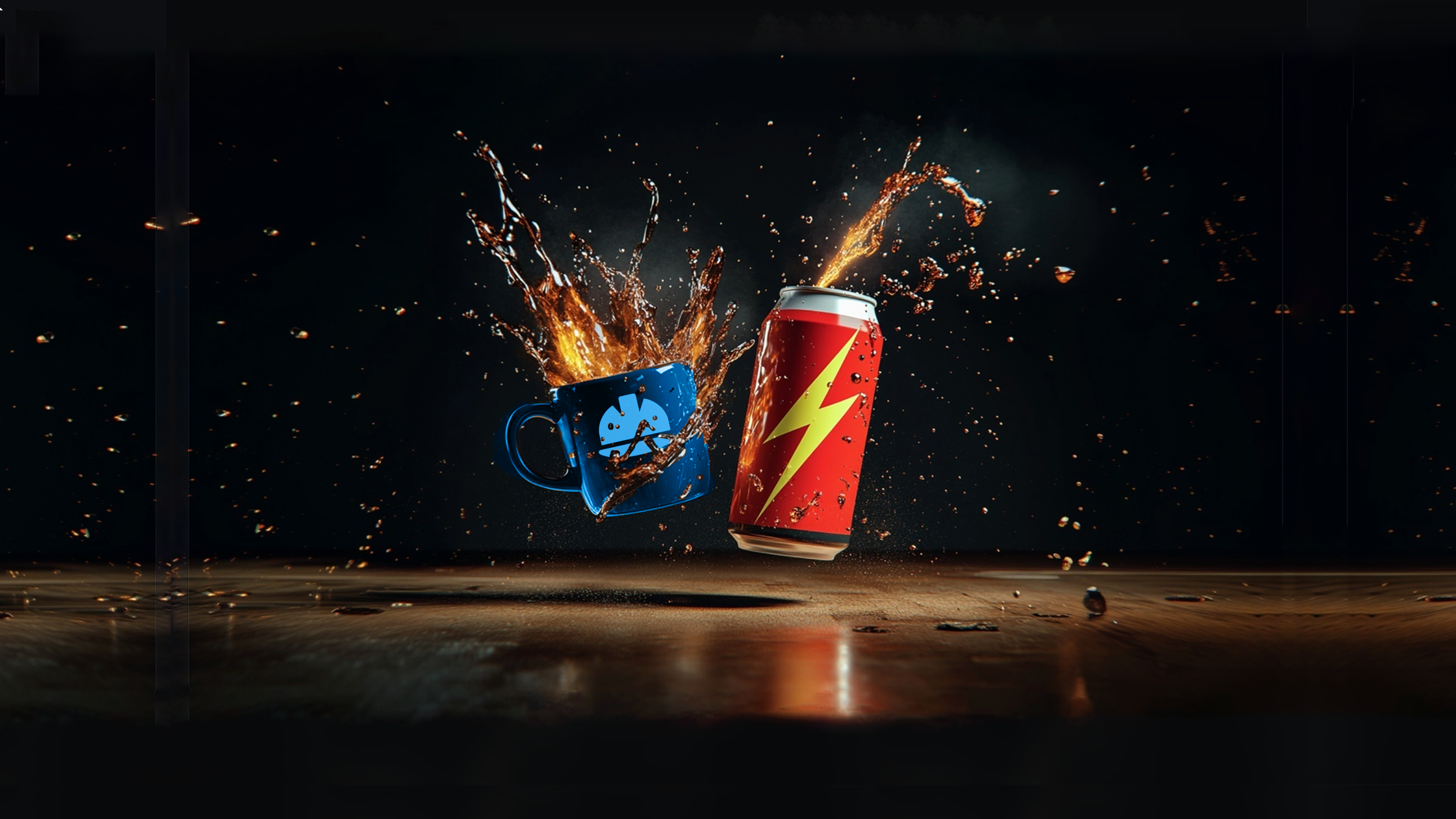Long shifts, early mornings, and mid-afternoon slumps all call for a serious energy boost. Whether you’re grabbing something from the corner store or brewing a cup before heading out, the right choice can make or break your day. But which what actually fuels you better? In this guide, we’re going to put energy drinks vs coffee head to head and give you a full breakdown of how each fuels your body.
Quick look
- Energy drinks deliver a fast, intense boost with caffeine, sugar, and stimulants.
- Coffee offers a steadier, cleaner lift, thanks to natural caffeine and antioxidants, with fewer additives and less sugar.
- Health impacts vary. Energy drinks may raise blood sugar and blood pressure, while coffee supports brain health when consumed in moderation.
- Choose based on your needs. Energy drinks are great before high-intensity tasks, while coffee is better for sustained focus during long shifts.
How energy drinks work

Monster energy drink held up via Getty Images
Energy drinks are built to hit fast and hard. Most are a cocktail of caffeine, sugar, B vitamins, taurine, and sometimes herbal extras like ginseng or guarana. The goal? Quick energy and sharper focus, at least for a little while.
- Caffeine is the main driver. It blocks adenosine, a brain chemical that makes you feel tired, and stimulates your central nervous system to boost alertness and reaction time. Many energy drinks pack 80 to 300 mg of caffeine, sometimes more than a double espresso.
- Sugar adds to the jolt, quickly spiking blood sugar levels and triggering a short-term mood boost. But that rush often fades fast, leaving you more drained than before.
- Taurine, an amino acid naturally found in the body, is often added with claims that it enhances mental performance. Some studies suggest that it may help reduce fatigue when paired with caffeine, but the overall findings are mixed.
- B vitamins, such as B6 and B12, help your body convert food into energy. While important for metabolism, they don’t give you a direct boost unless you’re deficient.
- The synergistic effect of these ingredients can feel like a power-up, but how long it lasts depends on your tolerance, body weight, and what else you’ve eaten or had to drink.
How coffee boosts energy

A cup of coffee being held via Pexels
If energy drinks are flashy and fast, coffee is the reliable workhorse that gets the job done, with a bit more simplicity. Its power lies in natural caffeine, which acts as a gentle but effective stimulant.
Caffeine in coffee typically ranges from 80 to 120 mg per cup, depending on the brewing method. It works by stimulating your central nervous system, helping you feel more awake, focused, and alert. According to research from Johns Hopkins University, it can also improve reaction time and short-term memory.
Coffee is also a rich source of antioxidants, especially polyphenols. These compounds help reduce inflammation and may also support brain health, protecting against cognitive decline. Unlike energy drinks, coffee is naturally free of sugar, dyes, and preservatives, unless you add sweeteners or flavored syrups. A plain cup of coffee provides clean energy without the crash that often comes with sugar-heavy drinks. That said, there are healthier options for energy drinks, like Yerba Mate.
Energy drinks vs coffee: Which lasts longer?
Energy drinks typically deliver a rapid and intense surge, thanks to their high caffeine and sugar content. That quick surge can feel great at first, but it often comes with a price: the dreaded crash. This is especially common with sugar-loaded options, where blood sugar levels drop quickly after the initial high.
Coffee, on the other hand, tends to offer a more gradual increase in energy. Without the added sugar and artificial ingredients, the body absorbs caffeine more steadily, leading to a longer-lasting effect with fewer crashes. Caffeine from coffee is metabolized over several hours, which helps maintain alertness without the rollercoaster ride. For many people, the effects of coffee last around four to six hours, while energy drinks may peak and fade more quickly, especially if they are loaded with simple carbohydrates and stimulants.
If you need a jolt that lasts, not just a sugar-fueled sprint, coffee is the more dependable pick.
Health considerations
Both coffee and energy drinks can give you a boost, but what’s in them (and how much you drink) plays a big role in how they affect your health.
Energy drinks
- Many are high in sugar, with some packing over 50 grams per can, more than the daily recommended limit. This can lead to weight gain, blood sugar spikes, and increased risk of type 2 diabetes over time.
- They often contain additives, dyes, and herbal blends like guarana, ginseng, and yohimbe. While these ingredients sound healthy, their long-term effects aren’t well studied, especially when combined with high levels of caffeine.
- For some people, especially those sensitive to stimulants, energy drinks can cause jitters, heart palpitations, or even elevated blood pressure.
Coffee
- While coffee is often blamed for dehydration, it’s actually pretty mild in that department, especially if you’re already getting enough fluids. That said, drinking it in excess can still make you feel a bit dried out.
- A plain cup of coffee is a low-calorie beverage packed with antioxidants, such as chlorogenic acid, which may help reduce inflammation.
- Too much caffeine, typically over 400 mg per day, or about three to four cups, can lead to sleep problems, anxiety, or digestive discomfort, depending on your tolerance.
While both can fit into a healthy routine, moderation and the right ingredients matter. The simpler your choice, the easier it is on your body.
Which one should you choose?
The best pick really depends on what you need energy for and how your body handles it. Each option has its perks, but they suit different situations and preferences.
Choose energy drinks if:
- You need a fast, powerful jolt, like before a tough workout or a long overnight shift.
- You’re going for a functional formula that includes extra ingredients like electrolytes, adaptogens, or amino acids.
- You can tolerate higher doses of caffeine and don’t mind a bit of artificial flavor or sweetness.
Choose coffee if:
- You’re after steady, clean energy that won’t spike and crash.
- You prefer a more natural option with minimal ingredients.
- You’re trying to cut back on sugar or ultra-processed additives.
No matter what’s in your cup or can, balance is important. And if you’re looking to boost energy naturally without relying on caffeine, try some nutrient-dense snacks that keep you going throughout the day, or switch to mushroom-based coffee.
Bottom line
The right energy choice when choosing between energy drinks vs coffee ultimately depends on your lifestyle, goals, and how your body responds. Energy drinks can deliver a fast, high-impact boost great for short bursts of activity. Coffee offers a more gradual, clean lift that’s easier to sustain throughout the day. Both can work, as long as you’re mindful of what’s in your cup.
Want more health and nutrition tips built for busy workers? Subscribe to our newsletter and stay fueled, focused, and ready for whatever the job throws your way.


